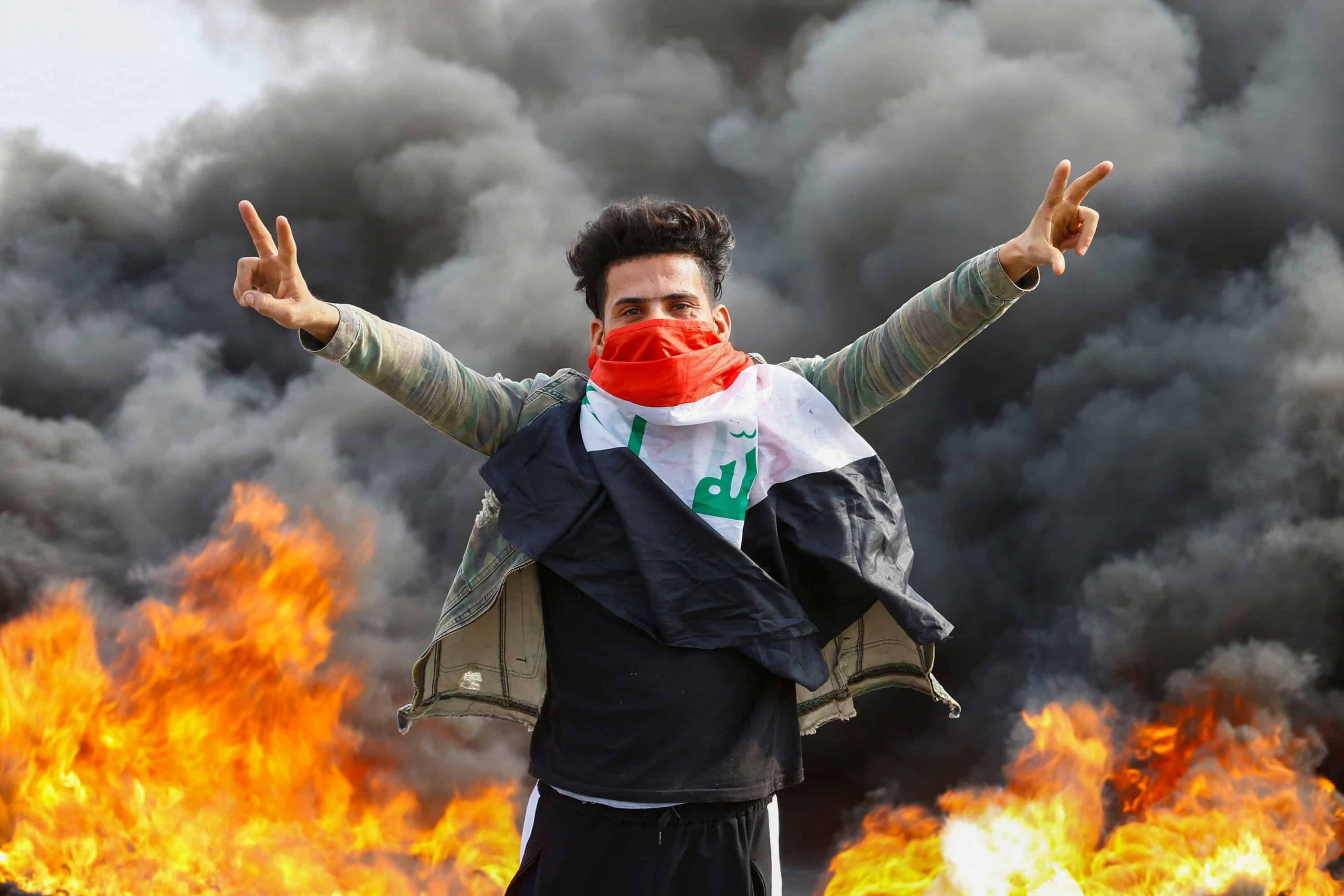Jordan Reimer is a Middle East policy analyst at the RAND Corporation.
“We want a country,” rings the cry around Baghdad’s Tahrir Square. “The people want the fall of the regime.” Mass protests have filled the streets in Iraq and Lebanon for weeks now. Despite the prime minister of Lebanon resigning at the end of October and his Iraqi counterpart agreeing to do the same, there is no end in sight to the demonstrations.
The current turmoil bears some resemblance to the 2011 Arab Spring protests that swept the region, but are better described as the “Bizarro Arab Spring” or one taking place in “the Upside Down.” The desire for sweeping political change has a crucial difference this time: the type of government protesters seek to replace. Where the original Arab Spring protests removed authoritarian leaders, the current demonstrators are trying to topple popularly elected governments, which could have dramatic implications for the future of representative democracy in the Middle East.
In Lebanon today, protests have centered around the demolishing of an explicit sect-based political system that’s been in place since the end of the civil war in 1990. And in Iraq, there are calls for a presidential system to replace the current parliamentary system, which operates with an implicit sectarian dimension.
Much as the original Arab Spring countries were led by corrupt elites unwilling or unable to provide basic services to the public, so too the elected governments in Lebanon and Iraq have proven unresponsive to the daily needs of their citizens. The consociational model in Lebanon entrenched a political class with no real fear of losing power no matter how (in)effectively they served their respective religious constituencies. And Iraqi parliamentary coalition-building has been so dominated by attempts to appease potential spoilers — particularly those with ties to Iran — through ministerial allotments and nepotistic hiring that governing and service provision has often been relegated to an afterthought.
“Elected governments in Lebanon and Iraq have proven unresponsive to the daily needs of their citizens.”
In a dictatorship, there are no legitimate means of political expression. The only way for the people to “vote” is with their feet, making their political desires known through mass protest and ultimately revolution. But in a democracy, even a fragile one, citizens’ desires can be made known via the ballot box or by the power of free speech and assembly to indicate dissatisfaction with the status quo. A democratic government has the ability to respond or change accordingly as politicians are incentivized to comply, lest they get voted out of office or lose their coalition partners scrambling to heed public sentiment.
Importantly then, a demand for “regime change” in a democracy is not a recipe for government to be more representative; it is, more likely, the exact opposite. In socially, religiously and ethnically fractious societies such as Lebanon and Iraq, dismantling de facto or de jure sect-based coalitional systems easily could lead to majoritarian ones, where the interests of individual communities are marginalized and the social fabric is forever torn. Rather than work within the confines of the current system, the masses are sending out a call for extra-constitutional change — and an open invitation for would-be populist autocrats to seize the mantle of popular discontent and elevate themselves to power.
That is exactly what befell Egypt in the summer of 2013. The first democratically elected president in Egypt’s history, the Muslim Brotherhood candidate Mohamed Morsi, faced mass protests a year into his term in office. The Egyptian military, declaring itself in service to the “people’s demands,” arrested Morsi and suspended the constitution. Then-minister of defense General Abdel Fattah el-Sissi has been in charge ever since. As President Trump’s moniker for el-Sissi — “my favorite dictator” — makes clear, there is no more democracy in Egypt.
“Democracy isn’t perfect, but it offers the chance to get it right the next time.”
In contrast, Tunisia’s government responded to a period of mass protest and political unrest much differently. That same summer, after a spate of assassinations led to calls for the overthrow of the democratically elected Islamist government, civil society groups were able to come together and constructively work with the government to hold a series of national dialogues that eventually produced new elections and a new constitution. Rather than accede to nihilistic calls for the overthrow of the government, social and political leaders came together to address protesters’ demands responsibly, earning the 2015 Nobel Peace Prize for their efforts.
The future of democratic governance in the Middle East is better served if Lebanon and Iraq follow the Tunisian model rather than the Egyptian one. Of course, that will require, above all, responsible behavior from the leadership in each country. Those still holding on to power would be wise to heed the lessons of summer 2013: Listen to the people. Work across the political spectrum. Create true broad-based reform, which may involve fundamental changes to the constitutional system.
Those in the street also should be careful what they wish for. Democracy isn’t perfect, but it offers the chance to get it right the next time. Following a revolution, there may not be a next time.





